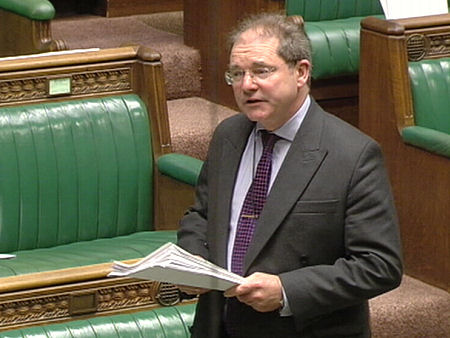23 May 2011
Geoffrey Clifton-Brown welcomes the setting up of a committee to examine the granting of injunctions and super-injunctions but believes that only a change in privacy laws will clarify the matter in light of the recent breaking of injunctions on internet blogs and Twitter.
Geoffrey Clifton-Brown (The Cotswolds) (Con): Does my right hon. and learned Friend agree that although we must use the naming of individuals in the House with great caution, a quick trip into the blogosphere and the Twittersphere, to use his words, would have revealed the names of those two individuals? Does he agree that what is happening in relation to injunctive law is bringing the law into wide public disrepute? Although I welcome the setting up of the committee, does he agree that ultimately there will be a need for a change in the law to clarify the matter?
The Attorney-General: As I indicated at the outset, it is possible for Parliament to enact changes to the law. The fact that the courts may not be able to and may not seek to control everything that might be said in breach of an injunction does not necessarily mean that that injunction does not have a valid purpose. It can at least limit the circulation of the damage, even if it cannot stop it. So for those reasons—we do not live in a perfect world—I do not think that the fact that an injunction can be breached and may be breached by some individuals invalidates it, although a point can sometimes be reached where a matter becomes so public and the currency so total that the existence of the injunction becomes pointless.
| Hansard
Geoffrey Clifton-Brown (The Cotswolds) (Con): Does my right hon. and learned Friend agree that although we must use the naming of individuals in the House with great caution, a quick trip into the blogosphere and the Twittersphere, to use his words, would have revealed the names of those two individuals? Does he agree that what is happening in relation to injunctive law is bringing the law into wide public disrepute? Although I welcome the setting up of the committee, does he agree that ultimately there will be a need for a change in the law to clarify the matter?
The Attorney-General: As I indicated at the outset, it is possible for Parliament to enact changes to the law. The fact that the courts may not be able to and may not seek to control everything that might be said in breach of an injunction does not necessarily mean that that injunction does not have a valid purpose. It can at least limit the circulation of the damage, even if it cannot stop it. So for those reasons—we do not live in a perfect world—I do not think that the fact that an injunction can be breached and may be breached by some individuals invalidates it, although a point can sometimes be reached where a matter becomes so public and the currency so total that the existence of the injunction becomes pointless.
| Hansard

